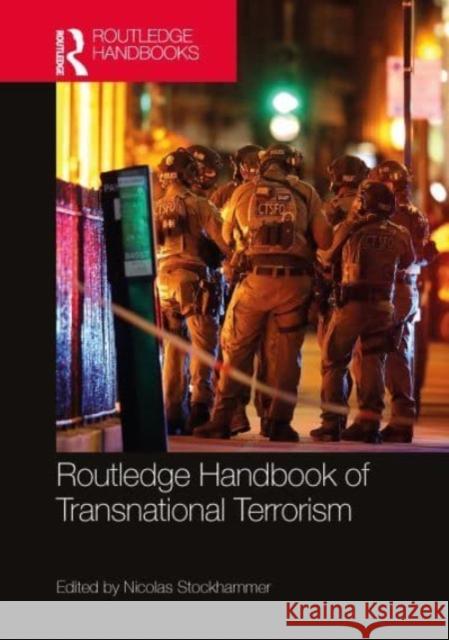Routledge Handbook of Transnational Terrorism » książka
Routledge Handbook of Transnational Terrorism
ISBN-13: 9781032353197 / Angielski
Routledge Handbook of Transnational Terrorism
ISBN-13: 9781032353197 / Angielski
(netto: 1135,82 VAT: 5%)
Najniższa cena z 30 dni: 1083,03
ok. 16-18 dni roboczych.
Darmowa dostawa!
This handbook provides contributions by some of the world's leading experts in the field on recent phenomena and trends in transnational terrorism.
This handbook provides contributions by some of the world's leading experts in the field on recent phenomena and trends in transnational terrorism.
Based on the methodological approach of a trend- and key factor analysis of transnational terrorism and processed on the virtual platform "Foresight Strategy Cockpit" (FSC), the volume seeks to examine what potential future variants of transnational terrorism may evolve. Focusing on the latest structural developments in the sphere of politically or religiously motivated violence, the handbook considers the tactical, strategic, and not least the systemic dimension of terrorism. Divided into seven thematic sections, the handbook’s contributions cover a wide range of issues, dealing among others with strategic and hybrid terrorism, the systemic dimension of extremist violence, prevalent actors, counter-narratives, the crime terror-nexus, the role of digitalization and the spiral dynamic between Islamist and right-wing terrorism. The expert contributions provide a condensed overview of current developments, structural linkages and important academic debates centering around transnational salafi-jihadi terrorism, but also right-wing terrorism and counter-terrorism. A key objective of the work is to make the effects of prevention/preemption, (de-) radicalization and (non-) intervention both transparent and assessable. As such, it contributes well-founded strategies, feasible solutions and options for policy-makers and counter-terrorism experts.
This volume will be of great interest to students of terrorism and counter-terrorism, political violence and security studies.











